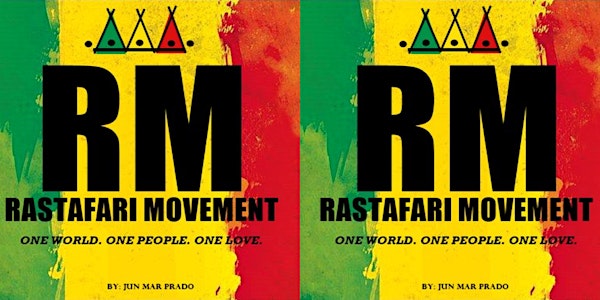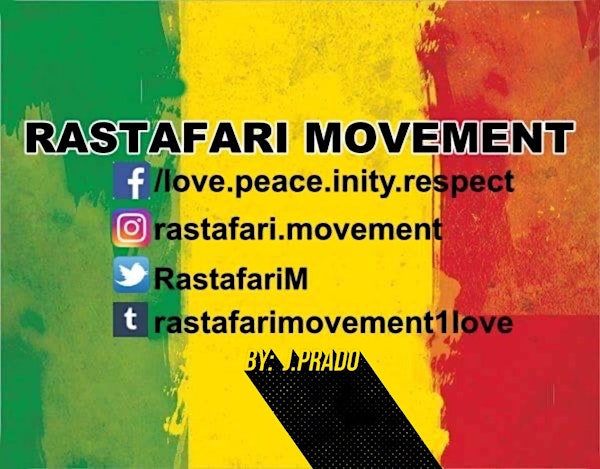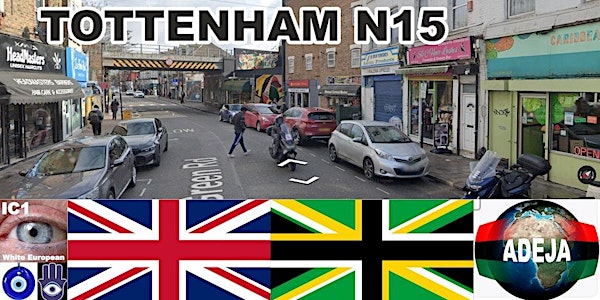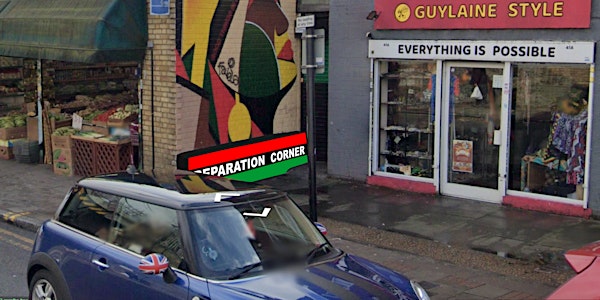









Rastafari Movement Rasta Rastafarian Reparation Corner Tottenham Haringey
The ADEJA Movement: Fostering Dialogue on Rastafari and Reparations in Tottenham Haringey
Location
Reparation Corner, 41 - 47 West Green Rd, Tottenham, Haringey. N15
41 West Green Road London N15 5BY United KingdomAbout this event
The ADEJA Movement: Fostering Dialogue on Rastafari and Reparations in Tottenham Haringey
In the vibrant streets of Tottenham Haringey, a community-driven initiative known as the ADEJA Movement has been steadily gaining momentum. Standing for "African Diaspora Empowerment and Justice Advocates," ADEJA is more than just a movement; it's a beacon of hope, a platform for dialogue, and a catalyst for change. At the heart of this movement are their weekly discussions on the Rastafari Movement and the pressing issue of reparations.
The Origins of ADEJA
ADEJA was born out of a collective desire to address systemic issues affecting the African diaspora, particularly in communities like Tottenham Haringey where historical injustices and socio-economic disparities persist. The founders of ADEJA recognized the importance of fostering dialogue, solidarity, and empowerment within the community as essential steps towards meaningful change.
What sets ADEJA apart is its inclusive approach. While rooted in the experiences of the African diaspora, ADEJA welcomes individuals from all backgrounds to participate in their discussions and activities. This inclusivity is reflected in their weekly gatherings, where people from diverse ethnic, cultural, and religious backgrounds come together to engage in dialogue and collective action.
Exploring the Rastafari Movement
Central to ADEJA's weekly discussions is an exploration of the Rastafari Movement. Originating in Jamaica in the early 20th century, Rastafari is a spiritual, cultural, and social movement that emphasizes unity, self-reliance, and African heritage. With its distinctive beliefs, symbols, and practices, Rastafari has become a global phenomenon, resonating with people across continents and cultures.
In Tottenham Haringey, ADEJA provides a space for individuals to learn about Rastafari beyond its stereotypes and misconceptions. Through guest speakers, workshops, and open discussions, participants delve into the history, philosophy, and contemporary relevance of the Rastafari Movement. They explore its teachings on spirituality, social justice, and the quest for liberation, drawing parallels with their own experiences and struggles.
Reparations: A Call for Justice
In addition to exploring the Rastafari Movement, ADEJA's weekly discussions also address the issue of reparations for historical injustices inflicted upon the African diaspora. Reparations, in this context, refer to the compensation and acknowledgment owed to descendants of enslaved Africans for centuries of exploitation, colonization, and systemic racism.
For many in the Tottenham Haringey community, the call for reparations is not just about financial compensation; it's about recognition, reconciliation, and the pursuit of justice. ADEJA provides a platform for individuals to share their stories, perspectives, and aspirations regarding reparations. Through education, advocacy, and community organizing, ADEJA seeks to amplify the voices of those impacted by historical injustices and push for tangible reparative measures.
Building Community and Solidarity
Beyond discussions on Rastafari and reparations, ADEJA serves as a hub for community-building and solidarity. Through various outreach initiatives, cultural events, and grassroots projects, ADEJA fosters connections and collaborations within the Tottenham Haringey community and beyond. Whether it's organizing food drives, hosting cultural celebrations, or supporting local businesses, ADEJA embodies the spirit of collective action and mutual support.
At the core of ADEJA's mission is the belief that true empowerment and justice can only be achieved through unity and collaboration. By bringing together individuals from diverse backgrounds and perspectives, ADEJA cultivates a sense of belonging, resilience, and shared purpose. Together, they challenge systemic injustices, celebrate cultural heritage, and envision a future where all members of the community can thrive.
All Are Welcome: Join the Conversation
The ADEJA Movement welcomes all individuals who are passionate about social justice, community empowerment, and positive change. Whether you're a long-time resident of Tottenham Haringey or someone passing through, you're invited to join their weekly discussions, events, and activities.
By coming together, sharing knowledge, and taking collective action, we can build a more just, equitable, and inclusive society for future generations. Join the ADEJA Movement and be a part of the transformation. Together, we can make a difference.
Exploring the Similarities Between the Rastafari Movement and ADEJA
In the mosaic of belief systems that enrich human culture, the Rastafari Movement and ADEJA stand as vibrant expressions of spirituality and cultural identity. Both movements have captivated scholars and seekers alike with their unique philosophies, practices, and cultural significance. Despite emerging from different geographic regions and historical contexts, these movements share remarkable similarities that underscore the universality of human spiritual quests and the resilience of cultural expression. Let's delve into the intricacies of these two movements, exploring their commonalities and shedding light on their profound impact on the world stage.
Understanding the Rastafari Movement
The Rastafari Movement emerged in Jamaica during the 1930s, amidst the socio-political turmoil of colonialism and racial oppression. Rooted in the African diasporic experience, Rastafari espouses the belief in the divinity of Haile Selassie I, the former Emperor of Ethiopia, whom adherents regard as the messianic figure foretold in biblical prophecy. Central to Rastafari philosophy is the repatriation of Africans to their ancestral homeland, Ethiopia, as a means of liberation from oppression and spiritual fulfillment.
ADEJA: An Overview
ADEJA, short for Assembleia de Deus em Jamaica, translates to the Assembly of God in Jamaica. Originating in Brazil, ADEJA is a Christian denomination that gained prominence in Jamaica and other parts of the Caribbean. With its roots in Pentecostalism, ADEJA emphasizes the charismatic aspects of Christianity, including spiritual gifts such as speaking in tongues, prophecy, and divine healing. The movement has flourished among Afro-Caribbean communities, offering a distinctive blend of evangelical fervor and cultural resonance.
Shared Cultural Heritage
One of the most striking similarities between the Rastafari Movement and ADEJA lies in their shared cultural heritage. Both movements emerged within Afro-diasporic communities grappling with the legacies of slavery, colonialism, and cultural displacement. Whether in Jamaica or Brazil, people of African descent confronted systemic oppression and marginalization, forging unique spiritual paths as a means of resistance and cultural affirmation.
Emphasis on African Identity
At the core of both the Rastafari Movement and ADEJA is a profound reverence for African heritage and identity. Rastafari advocates for the recognition and celebration of African culture, rejecting the Eurocentric narratives that have historically denigrated African peoples and traditions. Similarly, ADEJA embraces Afrocentric expressions of Christianity, infusing its worship practices with elements of African spirituality and cultural symbolism. For adherents of both movements, reclaiming African identity is not only a spiritual imperative but also a form of social and political empowerment.
Liberation Theology and Social Justice
Another significant parallel between the Rastafari Movement and ADEJA is their commitment to liberation theology and social justice. Rooted in the biblical narrative of liberation, both movements advocate for the emancipation of oppressed peoples and the establishment of a more just and equitable society. Whether through activism, community organizing, or cultural resistance, Rastafari and ADEJA communities have been at the forefront of struggles against racism, poverty, and inequality. Their spiritual convictions compel them to seek tangible change in the world, inspired by the vision of a society where all are treated with dignity and respect.
Communal Living and Alternative Lifestyles
Both the Rastafari Movement and ADEJA promote communal living and alternative lifestyles as expressions of their spiritual values. Rastafari communities often adhere to principles of simplicity, self-sufficiency, and environmental stewardship, embracing a way of life that prioritizes harmony with nature and collective well-being. Similarly, ADEJA congregations emphasize the importance of fellowship, mutual support, and shared resources, fostering tight-knit communities bound together by faith and solidarity. For adherents of both movements, communal living is not just a practical necessity but also a spiritual discipline that fosters unity, compassion, and resilience.
Symbolism and Ritual
Symbolism and ritual play a central role in both the Rastafari Movement and ADEJA, serving as powerful means of expressing faith, identity, and cultural heritage. From dreadlocks and the red, gold, and green colors of Rastafari symbolism to the ecstatic worship experiences and spiritual manifestations of ADEJA, these movements employ a rich tapestry of symbols and rituals to communicate their beliefs and values. Whether through music, art, dance, or ceremony, adherents of both Rastafari and ADEJA find profound spiritual meaning in the symbolic language of their respective traditions, weaving together the threads of past, present, and future into a vibrant tapestry of faith and culture.
Conclusion
In conclusion, the Rastafari Movement and ADEJA represent two distinct yet interconnected expressions of spirituality and cultural identity within the African diaspora. Despite emerging from different historical contexts and religious traditions, these movements share remarkable similarities in their emphasis on African heritage, social justice, communal living, and symbolic expression. By exploring the commonalities between Rastafari and ADEJA, we gain deeper insights into the complexities of human spirituality and the enduring power of cultural resilience. In a world marked by division and strife, these movements offer a vision of unity, solidarity, and hope, inspiring generations to embrace their roots, reclaim their dignity, and work towards a more just and equitable society for all.
#RastafariMovement #Rasta #Rastafari #Rastafarian #ReparationsProfessionals #ReparationProfessionals #ReparationTaskForce #ReparationsConsultants #Tottenham #Haringey #Reparations #ReparationsNow
https://www.eventbrite.co.uk/e/rastafari-movement-rasta-rastafarian-reparation-corner-tottenham-haringey-tickets-755417021647?aff=oddtdtcreator